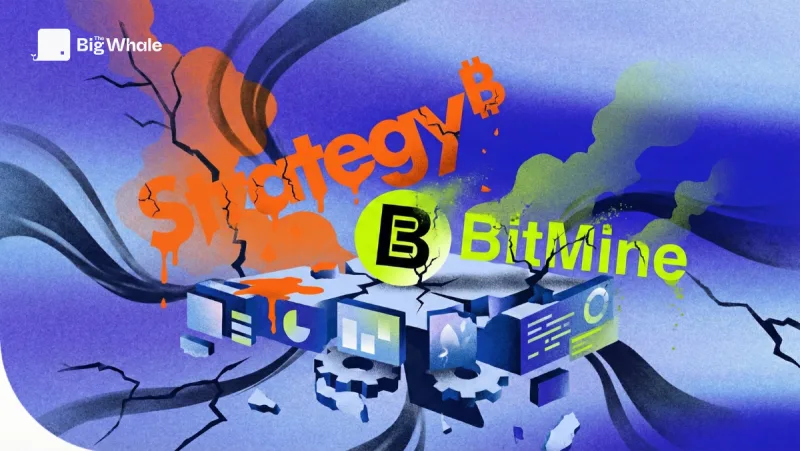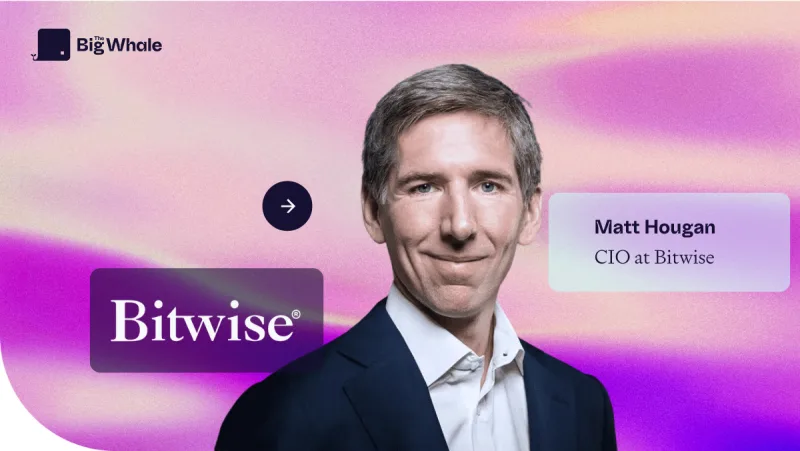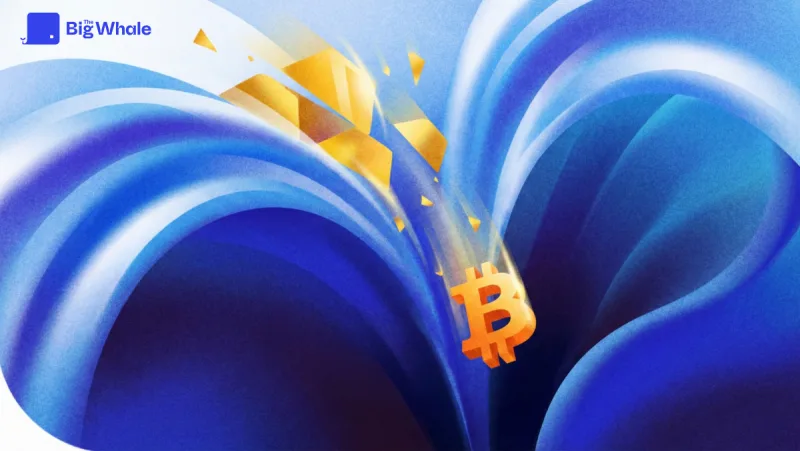TBW - Crypto payment cards: the 2025 comparison

The crypto payment card sector is undergoing a veritable renaissance in 2024. After the pioneers - Coinbase, Binance and Cryptocom - who have broken new ground in recent years, a new wave of innovators is shaking up the established codes.
"The reason why cards have developed so much is because they are an excellent loss leader for platforms, which can also generate new revenue from them", confides an industry specialist.
Leading the pack, Gnosis Pay is establishing itself as a forerunner with its non-custodial Visa card, due to be launched in summer 2023. In its wake, the giant Etherfi, with $10 billion in assets under management, is preparing to enter the market. At the same time, centralised players such as Deblock are charting their own course in this burgeoning ecosystem.
The revolution is only just beginning: some Web3 heavyweights - Metamask and Argent leading the way - are preparing their offensive with innovative payment solutions. These new services could mark a decisive turning point in the mainstream adoption of cryptocurrencies.
.png)
Gnosis Pay, the operational on-chain solution
A subsidiary of the Safe ecosystem, Gnosis Pay is shaking up the crypto payments market with its innovative solution. From Gibraltar, this ambitious start-up is rolling out a bold strategy that could well redefine industry standards.
The summer of 2023 marks a turning point with the launch of its Visa card, offered for a one-off fee of €30 - an entry barrier that users can easily bypass thanks to a well thought-out referral system.
At the heart of this innovation is the Safe smart wallet, the real cornerstone of the system. This cutting-edge technology differs from traditional wallets in its non-custodial approach, offering users total control over their assets via a programmable smart contract. The possibilities are vast: from customising governance rules to fine-tuning spending limits.
While the learning curve may seem steep for novices, Gnosis Pay makes up for this complexity with a major innovation: the integration of an IBAN, the result of a strategic partnership with Monerium. This Finnish fintech, one of the few to hold MiCA approval for issuing euro stablecoins, brings valuable regulatory legitimacy to the project.
Transactions are carried out exclusively in stablecoins on the Gnosis blockchain, with virtually zero xDAI fees. The rewards programme is proving particularly attractive: up to 4% cashback for 100 GNO holders, with an additional 1% bonus for early adopters with an "NFT OG".
"Apple Pay integration is our next step," Martin Köppelmann reveals to The Big Whale, also hinting at the development of a dollar solution.
The ecosystem is further enriched with the integration of Zeal Wallet, an innovation enabling users to generate attractive returns of 8% to 10% via the sDAI token, backed by the Sky protocol (formerly MakerDAO).
Read also - Sky (formerly Maker): What's the value of this new DeFi protocol and its ecosystem?
Automation takes the concept a step further: users can configure their account to maintain an optimal level of interest-bearing cash at all times, marking a new stage in the fusion of traditional and decentralised finance.
Deblock, the benchmark in terms of compliance
Deblock, a Franco-British start-up founded by former Revolut staff, is entering the crypto payments market with an innovative solution. Unveiled last April, its Visa card is based on cutting-edge technology: MPC (Multi-Party Computation), enabling funds to be secured without recourse to the traditional recovery phrase.
The offer comes in three packages: a free version, a Premium subscription at €14.99 per month, and an exclusive package reserved for Deblock NFT holders. While the service charges crypto/euro conversion fees (1.5% for Premium, 3% for standard) and cashback capped at 1%, it stands out for its flexibility with virtual card generation and compatibility with Google Pay and Apple Pay.
With a total fundraising of €27 million, including €16 million raised in December, Deblock has international ambitions. The fintech is preparing to integrate layer 2 networks and launch multi-currency accounts, marking its desire to expand beyond the eurozone.
On the regulatory front, Deblock is a pioneer. Last November, the fintech obtained the precious PSAN (service provider for digital assets) authorisation, becoming only the second company to obtain this sesame, after Société Générale-Forge. This is a major advantage in view of the fact that this accreditation will become mandatory under MiCA from July 2026.
This regulatory advance is all the more significant given that few players in the sector currently appear to be in a position to obtain this demanding certification. In concrete terms, PSAN approval enables Deblock to offer a complete package: a non-custodial wallet coupled with a current account with IBAN, making crypto-euro conversions considerably easier.
The start-up doesn't stop there: it also has an EME (Electronic Money Establishment) licence in France, valid throughout the European Union. "This dual certification gives Deblock a unique autonomy on the market", says a source in the traditional payments sector. "Conversely, their unlicensed competitors remain largely dependent on external partners to operate."
Cryptocom, the historical player
Since the Binance card is to be discontinued in Europe in 2023, the crypto card landscape has been reconfigured around three major players: Coinbase, Cryptocom and Bitpanda. While Coinbase is struggling to win over the European market with a limited offering - unlike its more attractive American services, notably via cashback - it is Cryptocom that is coming out on top with a particularly meaty proposition.
The Singaporean exchange is rolling out an ambitious loyalty strategy, built around six tiers indexed to the CRO stake, its native token. The entry-level "Ruby Steel" tier requires a deposit of $400 in CRO for 1% cashback (capped at $25 per month), while "Prime" status requires a substantial commitment of $900,000 locked in for at least six months.
The benefits extend well beyond simple cashback: Spotify subscriptions, VIP access to airport lounges, invitations to prestigious sporting events such as F1... The platform plays the premium lifestyle card, with generous spending limits set at €25,000 per day. The only downside is the not inconsiderable ancillary charges, including €50 on account closure and a €5 monthly penalty for inactivity.
Expected cards: EtherFi, Bleap, Metamask, Argent, etc.
The year 2025 is shaping up to be particularly rich in new developments on the crypto card market, with several highly anticipated launches.
In this new wave, two major Web3 players stand out: Metamask and Argent. These crypto wallet benchmarks are preparing to enter the payments market with innovative Mastercard cards. Their value proposition? A non-custodial approach, allowing users to keep control of their digital assets.
As for MetaMask, a strategic partnership has been formed with Baanx, a British fintech. This collaboration includes a cashback programme in BXX, Baanx's native token. Transactions will be processed via Linea, the layer 2 network developed by ConsenSys. Users will be able to make purchases using various stablecoins (USDC, USDT) as well as WETH, a derivative of ethers staked on Lido.
For Argent, it will soon be possible to spend USDC free of charge directly from its non-custodial wallet within the Starknet ecosystem (a L2 Ethereum).
EtherFi, the ambitions of an on-chain bank
With nearly $10 billion in assets under management, Etherfi is emerging as one of the major players in restaking in 2024. The platform, which aspires to become a truly decentralised bank on Ethereum, is about to take another step forward with the launch of a Visa payment card.
The sophisticated but innovative mechanism will allow users to keep their ETH stashed while accessing cash. How does it work? Holders will be able to use their weETH as collateral on a dedicated Aave market to borrow various stablecoins (Frax, USDC, PYUSD), for an interest rate of around 5%.
"This solution allows our users to maintain their exposure to staged ETH and their associated returns," stresses Mike Silagadze, CEO of Etherfi.
The card will come in four versions, with access fees tiered from 0.01 to 10 ETH: Pepe, Wojack, Chad and Whale. Each level will unlock specific benefits, including cashback of up to 4% and invitations to exclusive events.
The programme enters its test phase this 20 December, with an initial wave limited to 500 users, before a wider roll-out planned by the end of the year.
Bleap, launched by former Revolut employees
Founded by two former Revolut employees, Joao Alves and Guilherme Gomes, fintech Bleap has just completed a $2.3m fundraising round. The aim? To develop a next-generation bank account directly on the blockchain.
The start-up is banking on MPC (Multi-Party Computation) technology to simplify the user experience, avoiding the usual complexity of retrieval phrases. Accounts are automatically deployed on Arbitrum, an Ethereum second-layer network, although no extension to other blockchains is planned at present.
Bleap's major innovation lies in its partnership with Visa and its extended compatibility with stablecoins. In addition to the classic USDC and USDT, the card will accept the decentralised stablecoins of the Angle protocol: EURA for the euro and USDA for the dollar. For the time being, card spending is free of charge, making this a particularly attractive solution.
Currently in the test phase with a restricted group of European users, Bleap expects a commercial launch in the first quarter of 2025.
Be careful to declare every transaction to the tax authorities!"
One of the major obstacles to the adoption of crypto cards remains taxation. This is because each payment is considered to be a sale of cryptocurrencies in legal tender, generating a capital gain or loss that must be declared to the tax authorities.
Capital gains are subject to a 30% tax rate, which can prove restrictive for regular card use.
"Currently, the French tax system applied to cryptos was not designed with payment in mind," explains Pierre Morizot, CEO of Waltio, an assistant specialising in crypto tax returns. These are all arguments that limit their use, even if many users of these cards choose to take the risk of not declaring their transactions.



